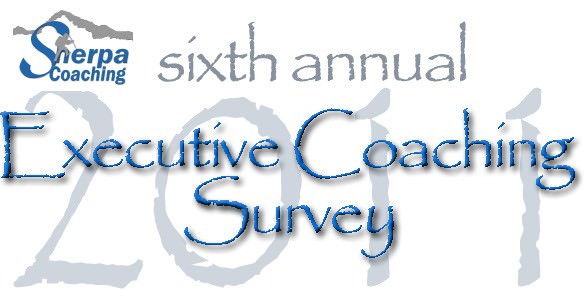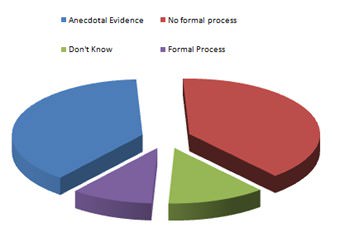
Impact on Business
Is coaching worth what people pay for it? HR professionals see the value of coaching as high, but they usually don’t measure value in a formal way. We have asked about return on investment for a number of years, and keep getting the same answer. People don’t know how to calculate it, or they simply don’t care to do so.
The number of people who say ‘we have no formal process’ for measuring the value of coaching’ is at an all time high.
[two_third last=”no”]Clients may not measure ROI, but coaches think it’s important. An executive coach in the Midwest says: “Coaching is gaining a foothold in the HR literature and at major organizations. This increases its visibility and credibility. For it to continue its upward climb, coaching must demonstrate that it helps an organization achieve its strategic and operational goals. Metrics will take a bigger role in the future of coaching.”[/two_third]
[one_third last=”yes”]Anecdotal evidence is frequently used to support coaching. The phrase ‘impact on business’ (IOB) seems to describe what most people expect from executive coaching.[/one_third]
Last year, we found that economic conditions did force companies to scrutinize their leadership development efforts. The number of organizations measuring ROI jumped from 12% to 18%. That increase was not part of a trend. This year, the number fell straight back to 12%.
How is Return on Investment Measured for Coaching?

Rather than ROI, there is a trend to rely on coaching to create IOB (Impact on Business). Divide professional activity into two realms: Skills and behavior. Skills include professional and technical ability, experience and knowledge. Behavior includes communication, motivation and leadership.
Positive skills along with positive behavior produce a positive impact on business (IOB). Coaching produces positive changes in behavior, which can be measured. Positive changes in behavior always improve an individual’s impact on business. That’s why anecdotal evidence is the most widely used way to see what benefits coaching produces.
Download Article 1K Club

















